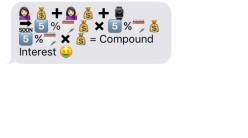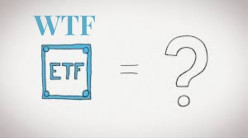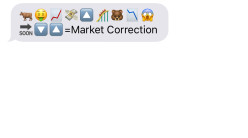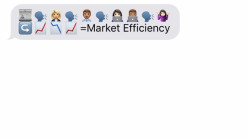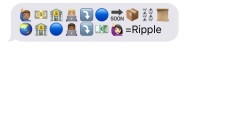Let us break this down
1. You decided to invest some money in a bond
2. You get a “certificate” claiming you have a bond
3. This bond “yields” fixed interest rate of 7% every year #bondgoals
4. You receive money from the bond every year
5. The bond has a maturity rate of 10 years
6. At the end of the 10 years the bond reaches maturity
Now let us piece this together, you decided to invest some money in a bond and in return you get a “certificate” that shows you own this bond, the bond yields (gives) 7% every year #bondgoals. Now you receive money from the bond every year and the bond maturity rate is 10 years, which basically states that your investment in the bond has reached and end.
What is a Bond?
Bonds are “debt” investments, where you as the investor are usually lending money to a company or government. They borrow your funds for a period of time and an interest rate; this is a way for companies to get a “loan” per se from regular investors to increase cash for pending projects.
Side Note: Bonds work on something called par value, which gives the bond a 1,000-dollar value at par (that means when the bond is paid back, the investor will receive “par value”
Three Types
• Corporate (Loan to a private corporation, interest is taxable)
• Municipal (issued by state governments, for things like toll roads, interest is tax exempt)
• US Treasuries (Government issued and are often backed by full faith of the government, interest is partially exempt from taxes)
Example
Think of it as you giving the government a loan, so they can use the money to buy an Aston Martin for James Bond, get it Bond and Bond! #cheesy and in return they offer you 7%, so that will yield $70 a year at par ($1000*7%), making it an attractive investments especially if the market’s interest rate are only 5%.
Vice versa when the interest rates are at 8% and bond is only giving you 7% then the bond is worth less because the interest rate that the bond is giving you is less than the markets interest rate. Why would you pay full price and get less interest? That is why these bonds then sell at “discount” (Orca will explain this more in future article)
Bond’s are very sensitive to interest rates. When interest rates go up, the bond value decreases, when interest rates go down the bond value increases. The interest rate and the duration of how long it takes for the bond to pay you back are the keys to success with bonds, as DJ Khaled would say.
Bonds are a great way to help diversify your portfolio and provide a steady income for income seeking investors. You should consider your specific financial situation before jumping into them.




